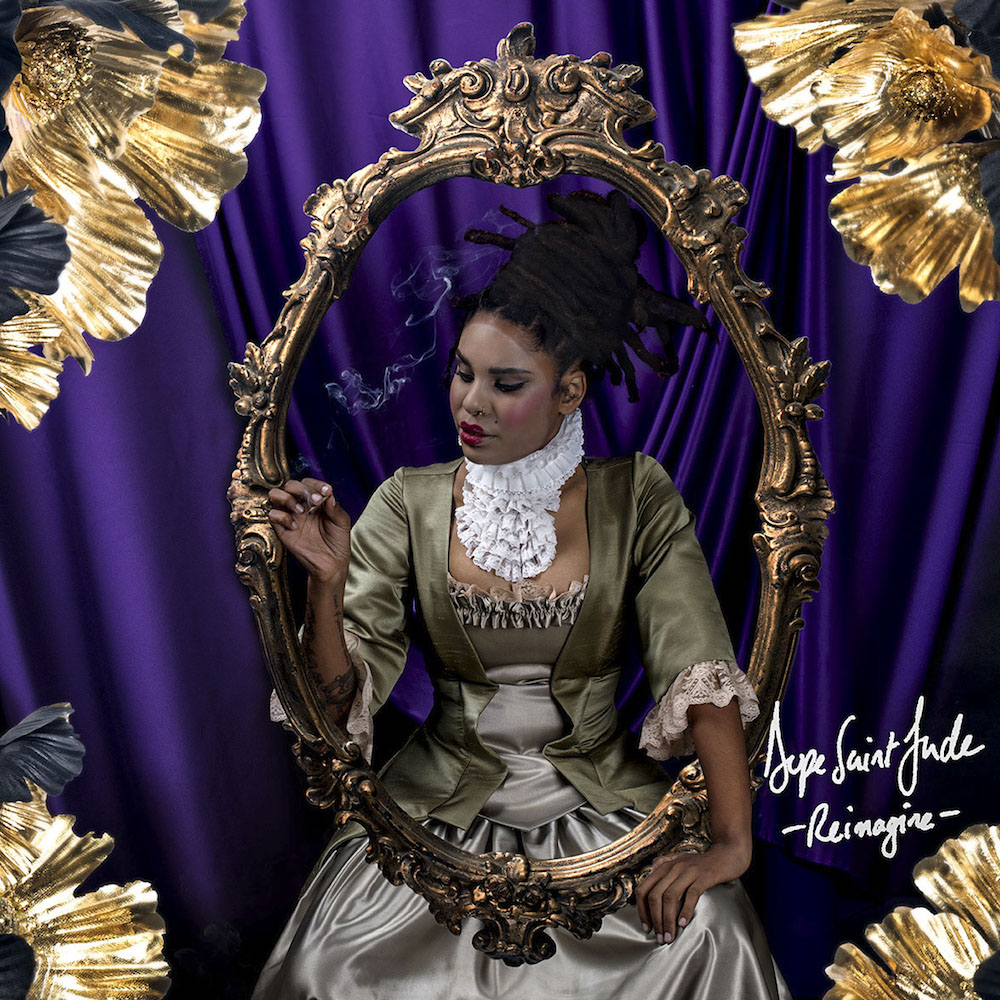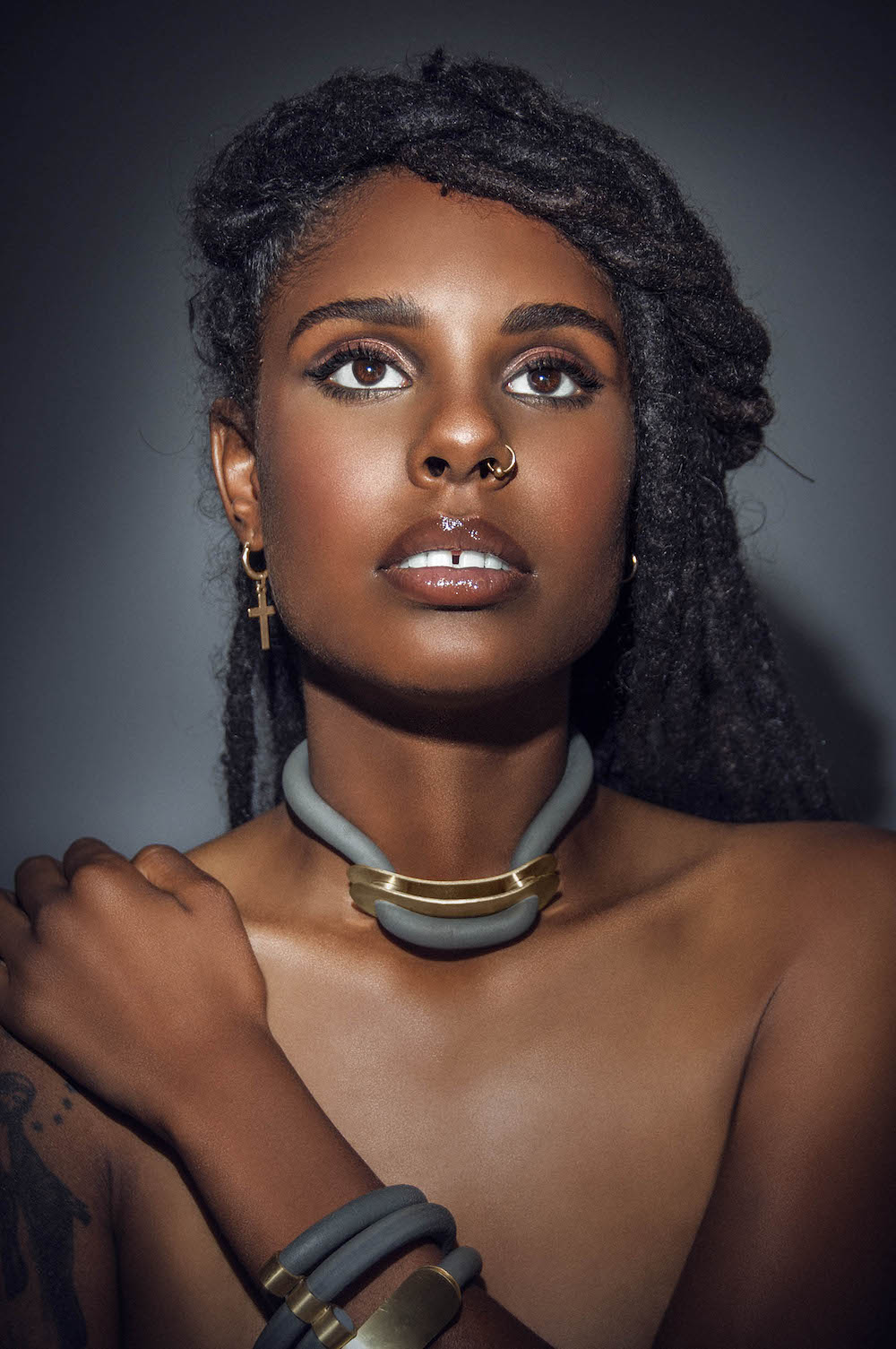Rapper Dope Saint Jude.
As you listen to the opening tracks on Dope Saint Jude’s debut EP, Reimagine, there’s no doubt the Cape Town rapper is doing things on her terms: “Resilient as fuck just to keep myself happy” she says in the intro and, laughing, “I was born to fight, no/ I was born to win” in Spose2b.
“My EP is called Reimagine because I have been engaged in a process of reimagining my reality through my music. The EP started just after I made my first trip out of the country for music. At that point, I realised that I had used music to recreate my reality from struggling artist to travelling paid artist. I was really made up with my ability to manifest my dreams into reality,” says Catherine Saint Jude Pretorius, the 26-year-old from Matroosfontein in Cape Town’s Elsie’s River.
“I used the idea of ‘reimagine’ to access the resources I needed to create my EP. It is entirely self-produced. I feel that this is a huge accomplishment for me as an artist and especially as a woman because very few women are credited for their own production. I recorded at Cape Audio College and worked with The Seppis to do the EP art.”
As interest in the Dope Saint Jude sound and personal production has recently increased, new conversations about the genre have been brought up. “Many people have downloaded it and even chosen to pay for it on BandCamp. Some hip-hop reviewers commented on the sounds being too ‘experimental’ or ‘unrefined’ or that it is more art than hip-hop,” she says, adding that her “intention was to make something that accurately reflected me and I feel I have accomplished that”.
Dope Saint Jude has, for the past six years, been earning her stripes in Cape Town’s underground music scene.
“My parents named me after the saint of lost causes. I found that to be a really profound and significant name. So, to honour my parents and my spirituality, I took on the name of Saint Jude and just added the ‘Dope’ to be kwaai.”
She explains that Saint Dude is a character she based on Lil Wayne and developed after having performed as a drag king.
“I was interested in exploring gender as performance. I became restless about my gender identity and was looking for a safe space to explore my masculinity. Drag performance offered a space for me to come to terms with the gender fluidity I started experiencing. Drag also allowed me to mess around with different types of performance.”
The character caught people off guard. “I would often rap Lil Wayne’s lyrics and some people accused me of being misogynistic, which was the point entirely. My performance was subversive. It made people feel uncomfortable to hear a woman rap the exact same lyrics a man raps.”

While Saint Dude was an exploration, Dope Saint Jude seems to be much more sure of herself – putting her stake in the ground to claim her space in a male-dominated hip-hop scene. And even though it comes with difficulties, she says her experience has been a positive one.
“I definitely believe I am a pioneer of the type of music I make, especially given the intersection of identities that goes into my performance.”
The change she would like to see in the South African music industry is more support for underground artists. “Locally, I am part of the underground. Unfortunately, there is no money for underground artists here unless one pushes to be mainstream. So I am forced to make a living overseas.”
She believes that if the South African entertainment industry was big enough, it would be able to “financially support underground or niche artists”.
Dope Saint Jude has embarked on tours that have taken her to Finland, the United States and France. “I have been well received every time. People who have enjoyed my work will reach out to book me for shows.”
And while managing her schedule around producing and performing, she is also a student at the University of Cape Town and is on track to making music her full-time career.
Although “it’s so great to be my own boss – I set my own rules and run my own show” it is not always easy. “It is challenging to have to find my own resources to create my art and all my management admin can slow down the creative process.”

It’s a process she describes as “introspective”, adding that when she is writing she tries to disengage from the world – getting off the internet and focusing on what is happening around her. “I keep my music quite honest and relevant to what is happening in my life. Without trying to, I talk about race, sexuality and gender because these are things that are part of my lived experience.
“I don’t like it when I get called a ‘conscious’ rapper or a ‘queer’ rapper etc. I have many stories. I am complex and have many narratives and my music reflects that.” Yet her experience of being black, a woman and queer “is marked by crazy juxtapositions, duality and grey areas. This translates into my music and visuals.”
Dope Saint Jude says young artists who hope to make a career of their passions should gain skills that go beyond their craft. “Be sensible and strategic about planning and learn business skills. One can’t make a living with just good art. It takes diligence, focus, strategy and resilience.”
It is this approach to her creative journey that has set Dope Saint Jude apart. “I have convinced myself to enjoy challenges. This is how I overcome them. I try to break everything up into pieces and celebrate the little triumphs, whether that is sending an overdue email, completing a beat or ending a tour in a different country.
“Self-love is a radical act and is necessary when dealing with the challenges the world throws at you.”
Dope Saint Jude’s Reimagine is available for free download on BandCamp and SoundCloud